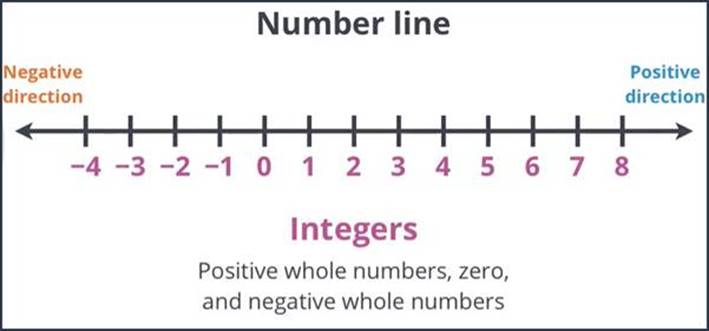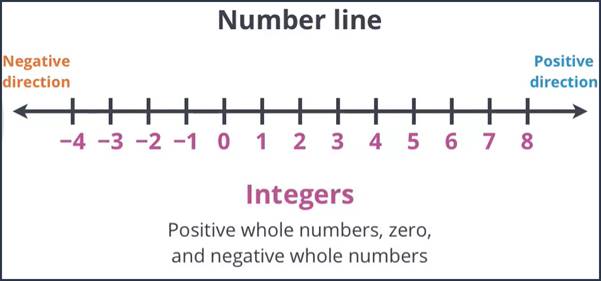Number Lines

Overview
In the
first part of our course, we're going to learn about something called number
lines. As we progress in the course, we'll use these number lines to help
us understand and work out different math problems, especially those related to
algebra. We'll be returning to using number lines many times during our course.
It's going to be a key tool for us!
What is a number line?
A number
line is a straight-line representing numbers as points along its
length. At its simplest, it can be used to show both positive and negative
whole numbers, but it can also be extended to include fractions, decimals, and
even irrational numbers.
Creating
a number line is straightforward. At the center of the line,
we mark a point representing zero. We place the positive numbers to the right
of zero and the negative ones to the left. The spacing between each number
should be equal to denote the same value difference between numbers. Look at
the image below.

Complete
the learning activity below.
Importance
of Number Lines
Number
lines are powerful mathematical tools because they help us understand and
visualize many mathematical concepts, including:
1. Addition and Subtraction:
Adding and subtracting numbers can be visualized as moving right (for addition)
and left (for subtraction) on a number line.
2. Negative Numbers:
Negative numbers become more understandable when seen on a number line, as they
are simply values on the left of zero.
3. Absolute Value: The
absolute value of a number is its distance from zero on the number line,
regardless of direction.
4. Fractions and Decimals:
Placing fractions and decimals on a number line can help you understand and
convert their relative values.
5. Ordering and Comparing Numbers: A number line clearly shows which numbers are greater or lesser
than others and their relative differences.
Let's Practice
Complete
the learning activity below.